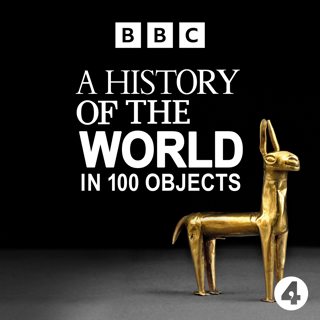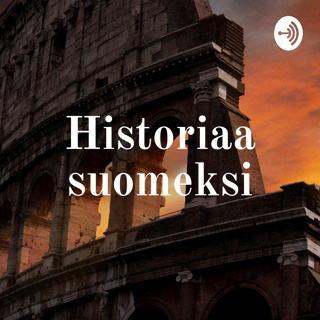
Clovis Spear Point
The Director of the British Museum, Neil MacGregor, retells the history of human development from the first stone axe to the credit card using 100 selected objects from the Museum. In this programme, Neil describes an object that dates from the earliest settlement of North America, around 13,000 years ago. It's a deadly hunting weapon, used by the first inhabitants of the Americas.This sharp spearhead lets us understand how humans spread across the globe. By 11,000 BC humans had moved from north east Asia into the uninhabited wilderness of north America; within 2000 years they had populated the whole continent. How did these hunters live? And how does their Asian origin sit with the creation stories of modern day Native Americans?Neil MacGregor tells the story of the Clovis Point, with contributions from Michael Palin and American archaeologist Gary Haynes
22 Tammi 201013min

Swimming Reindeer
The Director of the British Museum, Neil MacGregor, retells the history of human development from the first stone axe to the credit card using 100 selected objects from the Museum. Today Neil has chosen an object found in France, dating back 13,000 years. It is a carving of two swimming reindeer and it's not just the likeness that is striking. The creator of this carving was one of the first humans to express their world through art. But why did they do it? Neil MacGregor tells the story of the Swimming Reindeer, and its place in the history of art and religion with contributions from the Archbishop of Canterbury Dr Rowan Williams and archaelogist Professor Steven Mithen.Producer: Anthony Denselow
21 Tammi 201013min

Olduvai Handaxe
The Director of the British Museum, Neil MacGregor, retells two million years of history of human development through the objects it has produced. This programme follows early humans as they slowly begin to move beyond their African homeland taking with them one essential item - a handaxe.In the presence of the most widely used tool humans have created, Neil sees just how vital to our evolution this sharp, ingenious implement was and how it allowed the spread of humans across the globe.Today Neil MacGregor tells the story of the handaxe, with contributions from designer Sir James Dyson and archaeologist Nick Ashton
20 Tammi 201013min

Olduvai Stone Chopping Tool
The Director of the British Museum, Neil MacGregor, retells the history of human development from the first stone axe to the credit card, using 100 selected objects from the Museum. In this programme, Neil goes back two million years to the Rift Valley in Tanzania, where a simple chipped stone marks the emergence of modern humans.One of the characteristics that mark humans out from other animals is their desire for, and dependency on, the things they fashion with their own hands. This obsession has long roots and, in today's programme, Neil introduces one of the earliest examples of human ingenuity. Faced with the needs to cut meat from carcasses, early humans in Africa discovered how to shape stones into cutting tools. From that one innovation, a whole history human development springs.Neil MacGregor tells the story of the Olduvai stone chopping tool, with contributions from Sir David Attenborough and African Nobel Prize winner Dr Wangari Maathai
19 Tammi 201014min

Mummy of Hornedjitef
The Director of the British Museum, Neil MacGregor, retells the history of human development from the first stone axe to the credit card using 100 selected objects from the Museum. His history will cover two million years and include items that were made in every part of the globe. But his journey begins when, at the age of eight, he visited the British Museum for the first time and came face-to-face with an object that fascinated and intrigued him ever since - an Egyptian mummy.Hornedjitef was a priest who died around 2250 years ago, and he designed a coffin that, he believed, would help him navigate his way to the afterlife. Little did he know that this afterlife would be as a museum exhibit in London. This ornate coffin holds secrets to the understanding of his religion, society and Egypt's connections to the rest of the world.Neil MacGregor tells the story of Hornedjitef's mummy case, with contributions from egyptologist John Taylor, Egyptian author Ahdaf Soueif and Indian economist and Nobel Prize winner Amartya Sen
18 Tammi 201013min





















